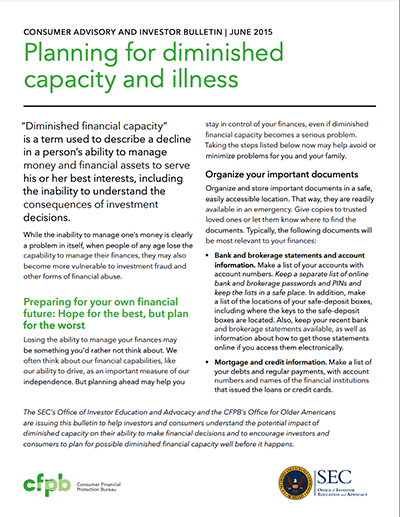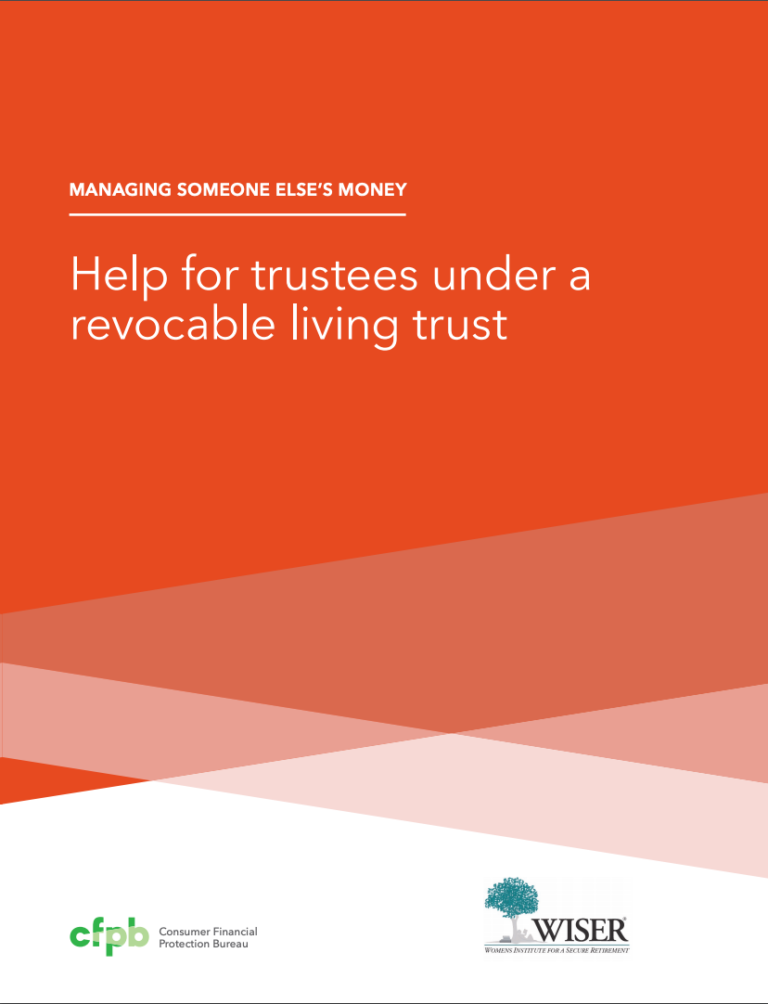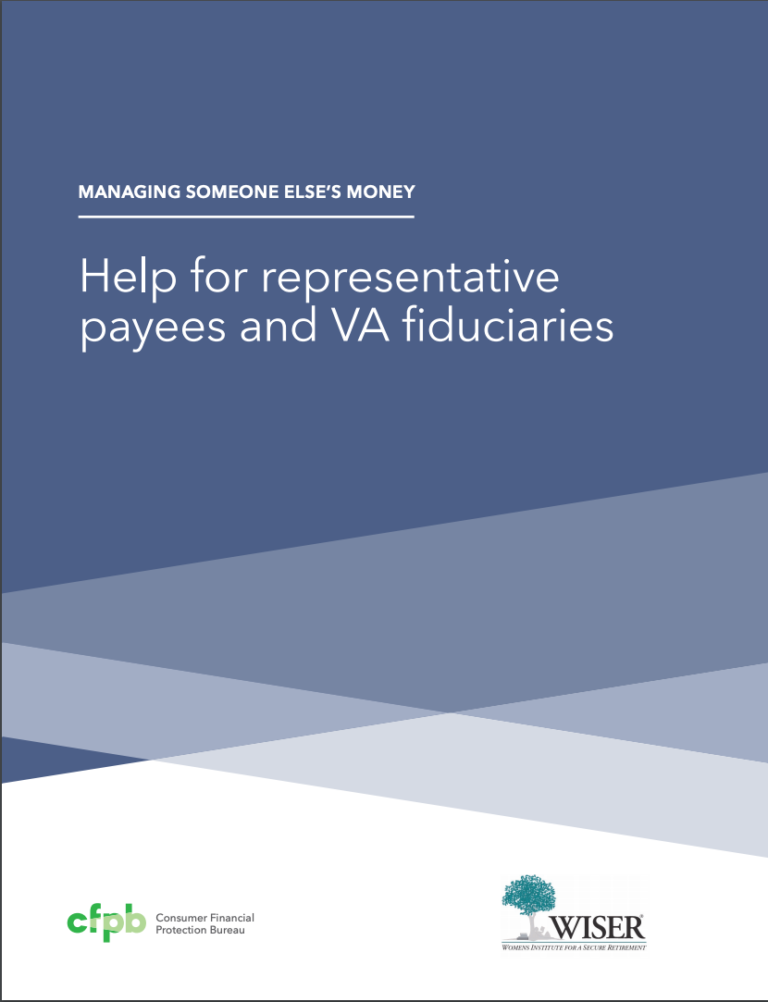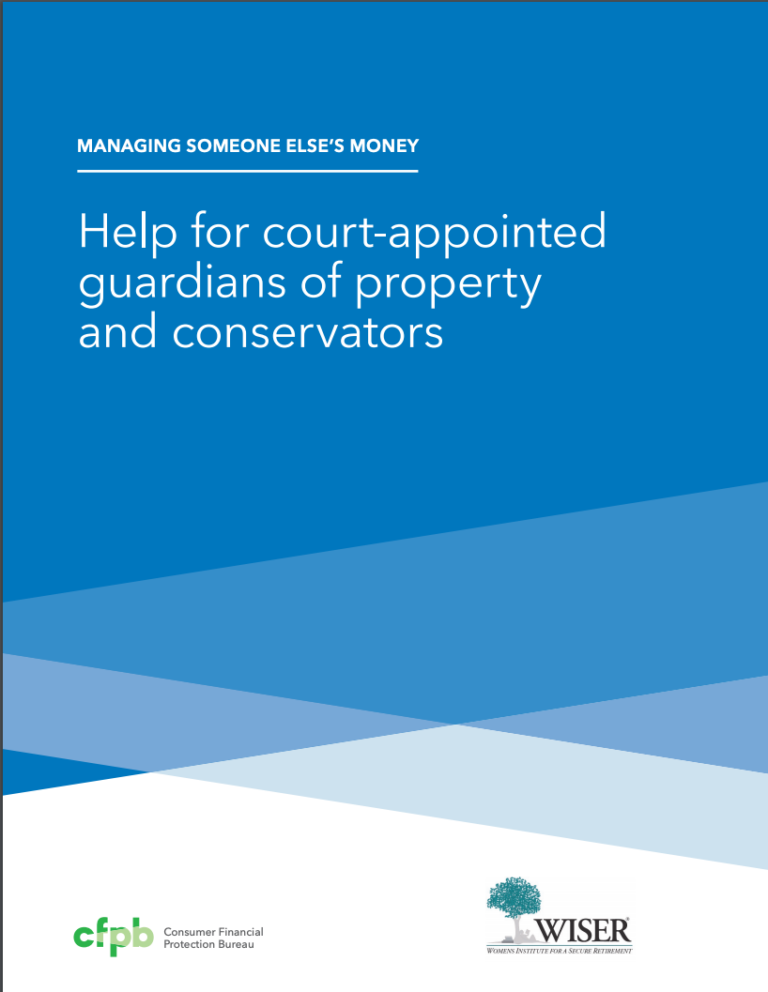
Caregiver Budget
Caregivers often find themselves paying expenses for the person they care for without considering the long-term consequences. Small expenses add up quickly and could prevent you from saving enough for your own retirement.
Especially if you are considering reducing your hours at work or quitting a job, a household budget is essential. It will help you decide how to adjust your lifestyle and expenses. As a caregiver, you may also help manage your care recipient’s budget. Keeping careful track of spending is a way to protect a caregiver from false allegations of financial exploitation. It can also prevent future family conflicts over what was spent and why. The Consumer Financial Protection Bureau has Managing Someone Else’s Money guidebooks that can also help.
The first step is to keep track of your spending.
- Buy a small notebook and take it with you everywhere you go for one month. Write down everything you spend money on, from the smallest “odds and ends” to larger purchases.
- After a few weeks, put your expenses into categories, like food, transportation and clothing. You may be surprised, for example, how much you spend on food when eating out.
- Make a list of bills you have to pay on a regular basis like car insurance, rent or mortgage payments, dental checkups, and gifts.
- Study your credit card statements and bank statements to make sure you have included (accounted for) everything. Make sure you have included time-sensitive items like:
— Health insurance premiums
— Requirements for health insurance enrollment periods
— Filing income taxes or requesting an extension
— Any real estate taxes
— Utility bills
— Mortgage payments
Next, compare your expenses to your monthly income and establish a monthly budget.
- Add up your total income—all of the money you receive in salary, other payments and benefits and any earnings on investments each year. Divide your annual income by 12 to calculate your monthly income.
- Subtract all your regular monthly bills and the other expenses that you found by keeping track of your spending in your notebook.
- If your income is not covering your expenses, find ways to cut back and reduce your debt. Listing all of your expenses will help you think of ways to economize. Also look at NCOA’s Benefits CheckUp tool to find other ways of supplementing your income or reducing household expenses.
- If you have expensive debt like credit card debt, it is important to figure out a plan for paying it off. This will help your long-term financial future. Read WISER’s page about debt warning signs and what to do about it.
- If you find yourself picking up expenses for the person you care for, be sure to track these expenses and include them in your monthly budget. You may want to consider other options such as asking other family members to help with expenses. If you are able to reduce your spending, consider putting the savings in a retirement account.
Use a Monthly Budget Template like WISER’s Budget Worksheet to start tracking your expenses.






